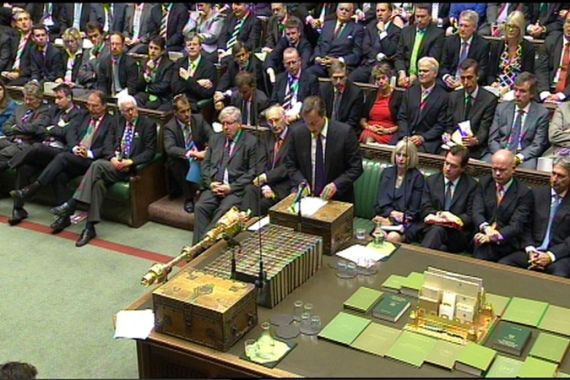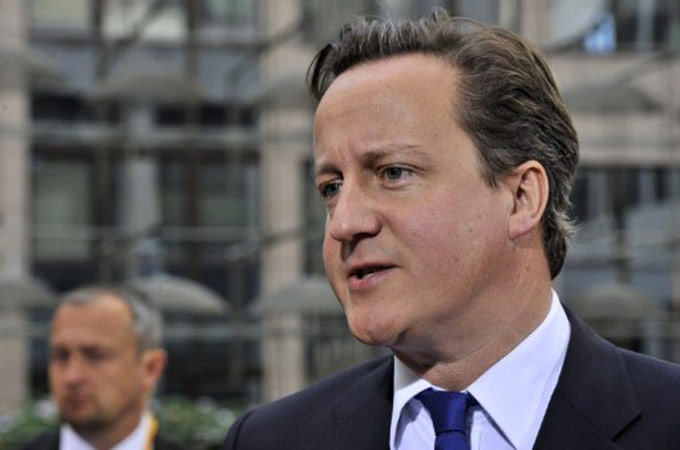UK house rejects calls for EU referendum
David Cameron sees off rebellion amongst his own MPs to call for a vote for Britain to leave the European Union.

 |
|
David Cameron has been accused by Eurosceptics within his own party of abandoning his own Eurosceptic views [EPA] |
Britain’s parliament has rejected a call for a national referendum on European Union membership, despite a large-scale rebellion against Prime Minister David Cameron by parliamentarians who want to opt out of the bloc.
The motion on Monday was opposed by the Conservatives, Liberal Democrats and Labour party, yet 111 parliamentarians voted for the motion, with 483 against.
Cameron had ordered his party to vote against the motion, arguing that Britain needs a strong voice in Europe to safeguard British trade and financial interests as eurozone leaders try to fix a sovereign debt crisis.
In what some experts have called the biggest rebellion of his premiership, more than 80 MPs from Cameron’s Conservative party defied his order to vote against the referendum.
The debate on the issue was prompted after a petition was signed by more than 100,000 people, calling for a referendum on whether the UK should stay in the EU, leave it, or renegotiate its membership.
The government was expected to win easily, and even if it had lost, the result would not be binding on ministers.
The debate re-ignites a long-simmering row over Britain’s role in Europe, which tore apart the Conservatives in the 1990s, and which Cameron has been desperate to defuse since he became party leader six years ago.
‘Neighbours house on fire’
Ahead of the vote, Cameron said he had shared the rebels’ “yearning for fundamental reform,” and promised “the time for reform was coming”.
He insisted he remained “firmly committed” to “bringing back more powers” from Brussels, but on demands for a referendum, he said amid an economic crisis the timing was wrong and Britain’s national interest was to be part of the EU.
“When your neighbour’s house is on fire, your first impulse should be to help them to put out the flames – not least to stop the flames reaching your own house,” he said.
Al Jazeera’s Barnaby Phillips, reporting from London, said: “Eurosceptic parts of the Conservative party see the eurozone crisis as an opportunity to tap into popular opinion against the eurozone.”
The motion’s critics see the debt crisis afflicting the eurozone as an opportunity to wrest back powers or even to leave the EU altogether.
Kirsty Hughes, a political analyst from the Oxford University Centre for International Studies, told Al Jazeera: “Cameron is doing the splits when it comes to Europe. On one hand he wants to be part of Europe, but he also he wants to bring back powers, Britain has always been a half-hearted member of Europe.”
Sarkozy – Cameron spat
Cameron’s European headache was further extended as he dismissed apparent criticism from France’s president over the eurozone crisis.
Cameron’s spokesperson did not deny Nicolas Sarkozy, the French president, had launched a scathing attack on Cameron at an EU summit that took place on Sunday.
According to British media reports, Sarkozy told Cameron: “You have lost a good opportunity to shut up.
“We’re sick of you criticising us and telling us what to do. You say you hate the euro. You didn’t want to join and now you want to interfere in our meetings.”
Al Jazeera’s Jacky Rowland, reporting from Paris, said: “It seems President Sarkozy took a less than diplomatic view of Britain being at the meeting.”